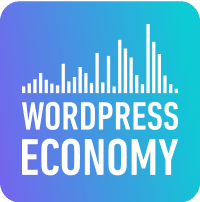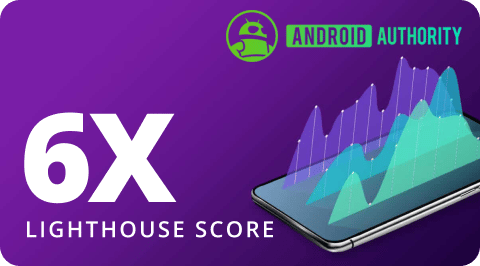
Why (And How) WordPress Works for Us
Today WP Engine is the digital experience platform for WordPress used by 95,000 customers across 150 countries. But, we didn’t start that way.
In 2010, I founded WP Engine based on the knowledge that there was a need for a premium WordPress service that would deliver the speed, scalability, and security that websites required.
The idea was born out of challenges I myself experienced with my blog. My server would crash if too much traffic came to the site at once, my page-load speeds were bad, and security was a quagmire. I searched for a service that could help me with those three things and found nothing.
After lengthy discussions with friends and colleagues, many of whom validated the need for a premium WordPress service, the initial idea for WP Engine took shape.
It Begins: The Early Days
To validate whether this was a viable business, and not just an interesting technical idea, we started small. I wanted the commitment of at least 30 customers before the company launched. But from 30 customers we grew to 50, and from 50 to 100. Soon after that, we started growing at breakneck speed, and it hasn’t stopped; today we add more than twice as many customers in a single month than the entire company had eight years ago.
In the early days, a lot of the sites we supported were blogs, like mine, and the level of service and support they needed typically aligned well with the three initial pillars I wanted to solve for: scalability, speed, and security.
But, just as the functionality of WordPress has evolved over the years, so too have its use cases. Today, our customers use WordPress for everything from marketing and eCommerce to multichannel content publishing and integration with enterprise-level technology stacks. In turn, we’ve augmented our business to accommodate those needs and we’ve updated our strategic pillars to meet the heightened expectations for the digital experiences of tomorrow: agility, intelligence, performance, and integrations.
A Global Organization
We’ve also grown in size; WP Engine has expanded to become a global organization, with customers in more than 150 countries and offices in the U.S., England, Ireland, and Australia. In 2014, CEO Heather Brunner joined the company and began building an award-winning executive team. We now number more than 640 employees.
That growth hasn’t gone unnoticed either. In 2018, we secured a $250 million investment from Silver Lake, the global leader in technology investing, which signified the largest round of funding in Austin’s tech ecosystem in more than a decade.
Today, we’re the best-funded startup in Texas, we recently surpassed $132 million in annual recurring revenue, and we’re growing at more than 30% year-over-year. We were also recently recognized as a Gartner Peer Insights Customers’ Choice for Web Content Management (WCM) and most impressively, at least to me, we recently surpassed our 95,000th customer!
The WordPress Difference
There are a lot of contributing factors behind WP Engine’s success—we have amazing employees who are passionate about helping our customers and partners win online, and we have exceptional leadership in place who have helped grow the company with intensity and integrity.
Another big factor in our success has been WordPress itself. Not only because it’s the platform we provide service for, but because we rely on it to fuel our own business.
Our corporate website, wpengine.com, is built entirely on WordPress, and we’ve been able to integrate that site with best-in-class eCommerce tools, online chat functionality, internal lead generation and analytics software, and hundreds of other martech tools that help us keep an eye on our business and all of the different touchpoints that occur across our customer lifecycle.
A third of all of our revenue now comes through wpengine.com, and our internal organization has adapted to reflect that—today we have a full team of WordPress developers specifically dedicated to our website. While the majority of our customer-facing developers and engineers have their own departments, our web team is a critical part of WP Engine’s marketing team and they work hand-in-hand with our content creators and brand marketers.
We also use WordPress extensively for external communication. Our blog, and our two branded publications, Torque and Velocitize, are built with WordPress and play an integral role as lead generation and thought leadership platforms for our business. They extend our mindshare, reaching different audiences like WordPress developers and digital marketers through multiple content channels.
Part of the Community
As WordPress advocates, we also give back to the WordPress community in a number of ways. One of the most visible is through the efforts of dedicated members of our marketing web team, who are contributors to WordPress core.
Beyond the day-to-day contributions those employees make to core, they’ve also played significant roles in the launch of WordPress 5.0, and the creation of popular WordPress plugins like the text-to-speech Amazon Polly plugin and most recently, the Cloudflare Stream plugin for video streaming, all of which reinforce the use of WP Engine and WordPress as an enterprise-grade solution.
An Open Source DXP
This brings us to the fact that WordPress on WP Engine can now proudly take its place alongside other enterprise content management system (CMS) platforms like Sitecore, Adobe Experience Manager, and Acquia. In fact, an international study jointly commissioned by WP Engine and Manifesto and conducted by Vanson Bourne explored which CMS technologies are used most commonly by enterprises.
The study, “WordPress Success Among Enterprise CMSs” surveyed more than 300 enterprise-level IT and marketing decision-makers in the U.S. and UK. The majority (61 percent) of the respondents worked for organizations with at least 3,000 employees and on average came from organizations whose global revenue totaled $3.2 billion. The survey found WordPress is on par with Adobe Experience Manager as the most frequently used CMS in either a primary or secondary fashion and WordPress was the leading secondary CMS.
Today, a growing number of enterprise organizations use WP Engine’s digital experience platform for WordPress, which is open source, as a central hub to connect the entirety of their martech, analytics, and technology stacks.
An Eye to the Future
WordPress has also informed our vision for the future. In June 2018, we acquired StudioPress, its suite of premium WordPress themes, and the Genesis Framework, which is the most popular theme framework for building great-looking, dynamic WordPress sites.
On the heels of that acquisition, we also purchased Array Themes and its Atomic Blocks library, which has emerged as the most popular, go-to source for creative, easy-to-use content blocks that leverage the new post editor found in WordPress 5.0+. By incorporating these blocks into the latest themes we’ve built with Genesis, WP Engine is able to help WordPress users add great-looking elements to their web pages at significantly reduced turnaround times, all without touching a line of code. More importantly, it allows us to set up our customers for future success, as we embrace the newest technologies in the WordPress ecosystem.
Both the StudioPress and Array acquisitions were made as part of a conscious effort to lead where the future of WordPress—and the web—are going, particularly in regard to dynamic, block-based themes that are SEO and mobile-friendly. As part of those recent acquisitions, updated versions of the Genesis Framework and a suite of more than 35 StudioPress themes are all available to WP Engine customers at no extra cost. It’s our hope that by making these world-class WordPress resources more widely available, we will encourage their adoption among audiences who may not have even known they existed.
The Next Generation
We’ve also taken a close look at what the next generation of consumers wants when it comes to digital experiences. In an effort to stay ahead of the curve and ensure that the WP Engine platform is ready to deliver those experiences, we commissioned what is now an annual survey aimed at understanding the ways Gen Z—the generation born after 1996—behaves, buys, and builds online.
This generation, which is expected to make up 40% of all consumers by 2020, is already demanding more personalized, authentic, and emotive digital experiences, all delivered at faster speeds than ever before. In order to help our customers meet the demands of this and future generations, we’ve prioritized the integration of technologies into our own digital experience platform that emphasize mobile compatibility, page-load speed, and formats like video that are overwhelmingly popular among younger audiences.
Finally, as WP Engine keeps growing, we’ll continue to use WordPress and the WordPress community as our north star. From incorporating new technologies that make mobile an easier format for our customers to navigate, to announcing new partnerships that let us deliver on our promise to help customers win online, there’s still plenty left to be written in the WP Engine story.
Thank you for joining us on this journey, and stay tuned for more exciting developments to come.











Start the conversation.